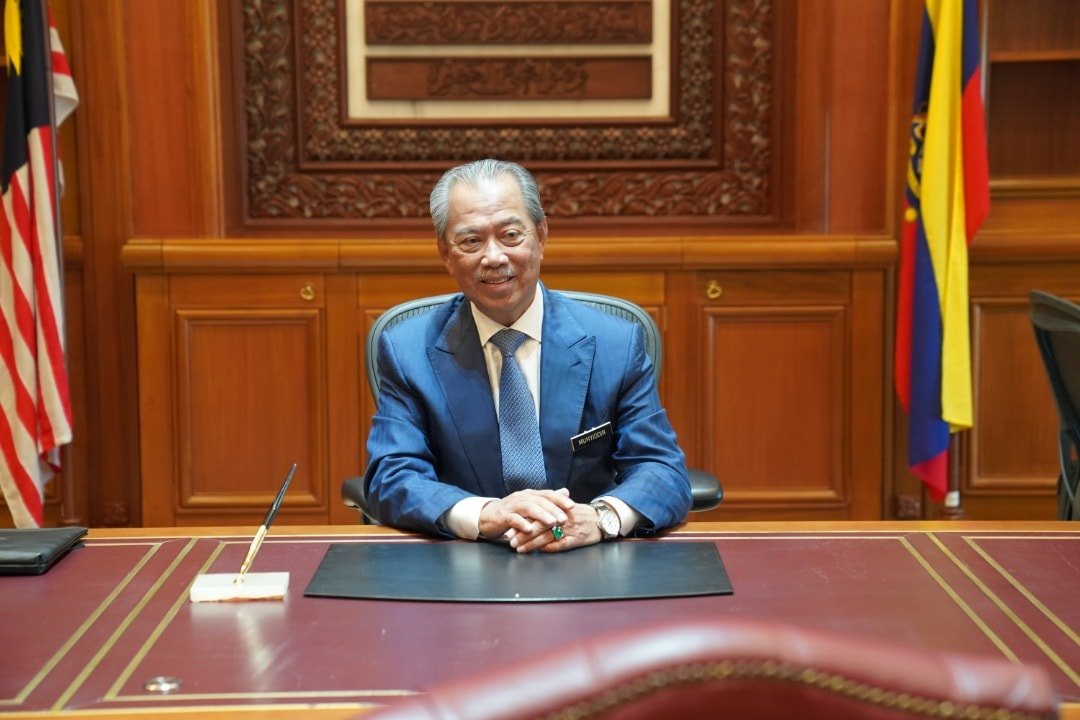As Muhyiddin Yassin is still figuring out how to form his Cabinet, one week after his swearing-in, Malaysians have been urging the new prime minister to appoint the health minister first due to the novel coronavirus outbreak.
Any new Cabinet formed now, less than two years after the 14th general election, arguably does not represent the wishes of those who voted in May 2018. Usually, the Cabinet should comprise lawmakers directly elected by the people and makes policies based on their election manifesto.
Both the previous Barisan Nasional (BN) and Pakatan Harapan (PH) administrations, however, have used so-called “backdoor” Cabinet appointments where appointees were first made Senators, an unelected post. Nonetheless, a Cabinet formed after a general election still had the governing coalition’s election manifesto to guide it.
The hastily-cobbled ruling Perikatan Nasional (PN) does not. We don’t know what its ideology is, nor its stand on various policy issues. We don’t know PN’s views on foreign policy, or on economic or social issues. It is not enough to say that they, like BN or PH, “fight for the rakyat’s welfare” – there are different ways of achieving particular objectives.
If you’re a libertarian (or an economic conservative), you would push for pro-business policies to create more jobs, reduce regulation, and expand the market so that people have money to buy goods and services, while prices stay low in a competitive environment. If you’re a socialist, you would push for greater government control to keep prices artificially low and expand access to goods and services.
When it comes to health, the last thing we need is a technocrat health minister. The health portfolio in a Cabinet is no different than any other portfolio – be it foreign affairs, home affairs, domestic trade, international trade, human resources, defence, education etc.
All of these portfolios, including health, require ministers and deputy ministers with certain expertise, but technocrats, or experts, are not necessarily the best appointments because what looks good on scientific papers doesn’t always work out in reality. Plus, it’s not as if experts don’t have their own worldview.
Technocrats and experts are best left in the civil service, who can advise ministers on the specifics and implications of various policy decisions. But civil servants are there to serve the government of the day, regardless of their personal inclinations, because the elected government serves the people based on their ideology and policy platform.
In other words, ministers are directly accountable to the people, and hence, must enact legislation and policies upon which the government was elected.
Health is not apolitical.
If the government of the day is socially conservative, then health policies in areas like sexual and reproductive health will naturally be conservative, where abortion pills are not registered in Malaysia and unmarried women are denied access to birth control pills, or even pap smears, in government clinics. These conservative policies remained throughout both the BN and PH administrations.
If PN has a more progressive outlook, then its health minister should expand sexual and reproductive health rights to women. Sexual and reproductive health also isn’t under the health minister’s purview alone, as there are many LPPKN clinics under the Women, Family, and Community Development Ministry, so progressive policies in this area must be worked on by both ministers.
When it comes to vaccine hesitancy, should the PN health minister enforce mandatory vaccination, with legal penalties for vaccine-hesitant parents, like fines or denial of school registration for unvaccinated children? Or should the PN health minister focus on using tools of education and persuasion instead? Should the PN health minister also vaccinate children of both documented and undocumented migrant workers? Again, it depends on PN’s ideology.
A technocrat health minister may be myopic and simply dismiss education and immigration implications. Public health, of course, is paramount, but a huge part of a minister’s job is to persuade not just her colleagues in Cabinet and lawmakers across the divide, but also ordinary Malaysians.
It’s not enough to have a good policy on paper – a good politician must communicate policies well. A single-minded technocrat may not have a politician’s skills of communication, compromise, and coalition-building because experts usually think they’re right.
And if the Covid-19 outbreak in Malaysia worsens beyond “early containment”, should the health minister work with the private sector and send companies to people’s homes for test samples? Or should government facilities keep the test kits and find some other way of alleviating overload, even as anxious asymptomatic people wish to get tested immediately after being in close contact with a confirmed case? Should the government block all cruise ships from entering Malaysia for some unspecified period of time? These are all political decisions.
The PN health minister doesn’t necessarily have to be a doctor. The top ranks of the civil service in the Ministry of Health (MOH) are already dominated by doctors. Being a health minister requires working with pharmacists, nurses, dentists, patient groups, health care providers from both the private and public sector (MOH and public university medical facilities), researchers, and the pharmaceutical industry, among others, all of whom have their own opinions on how things should be run in health care.
A PN health minister should, first and foremost, genuinely consult all stakeholders in whatever policies or legislations she wants to push. Complaints about the lack of sincere stakeholder engagement persisted in both BN and PH governments.
The PN health minister should engage private health care professionals instead of seeing them as rivals. She should also work with the industry to achieve the best solutions in expanding access to health care as a human right, bearing in mind too that certain health policies related to patents have international trade implications.
Most of all, the PN health minister should be transparent and be willing to accept public scrutiny, instead of resorting to intimidation to shut down dissent and criticism.
Since PN did not come into power on the back of an election manifesto, the first thing the new health minister should do is to outline the government’s policy platform on various health care issues, a so-called “health manifesto”, so to speak. This will provide clarity to both the civil servants and Malaysians on how PN will push its health care objectives.
Civil servants in MOH must follow the minister’s lead, while ordinary citizens are free to criticise any policies they dislike. Or even vote PN out in the next general election, be it a snap poll or in 2023.

Boo Su-Lyn is CodeBlue editor-in-chief. She is a libertarian, or classical liberal, who believes in minimal state intervention in the economy and socio-political issues.








